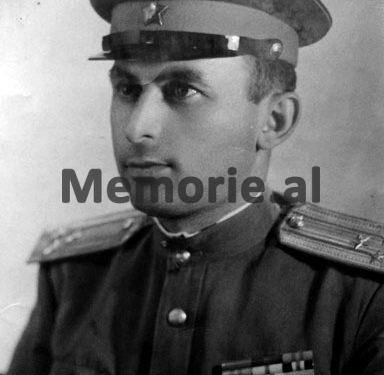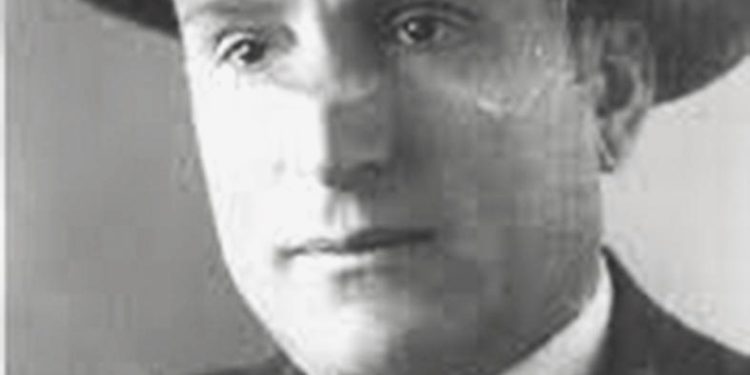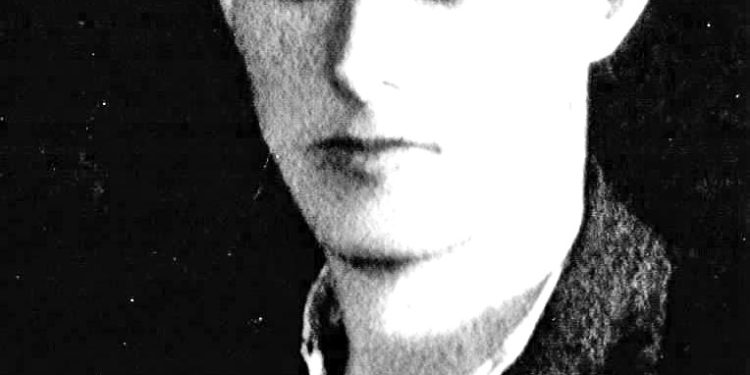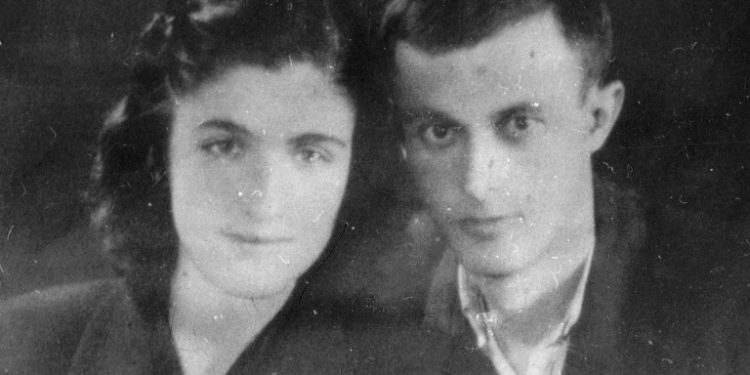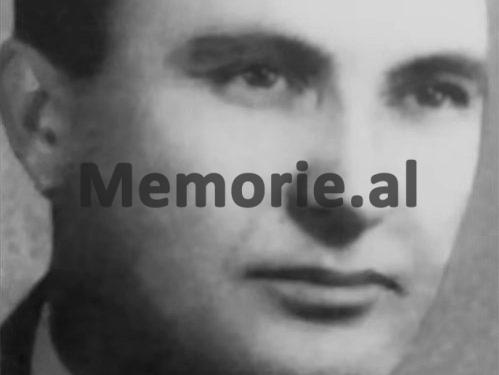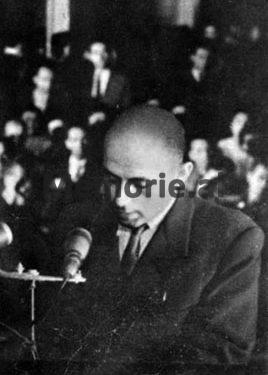By Enver Kushi
Memorie.al / Dear father Cervi. It’s been more than a year since I got hold of your book, which I have read and re-read several times, I have set about translating it into Albanian and I hope that after some time, I will be able to put the history in the hands of Albanian readers. of his family, the story of seven Italian resistance fighters, who sacrificed their lives for the holy cause of freedom. I have the firm belief that the translation into my language of this fascinating story will serve the Albanian people, to learn the history of the Çervi family, which – as you say – is the history of the Italian people, brave and hardworking, the history of the whole Italian families, who have fought for their rights. But I would add that this is also the history of all the peoples who fought against fascism and Nazism, and the history of the Albanian people, who for centuries, with weapons in hand, have resisted many types of foreign occupiers, traitors inside”.
These lines that we are publishing in this article belong to a paper that is being published for the first time. It was written by Sulo Mehmet Sejko, in December 1957. Sulo Sejko addressed the letter to Alcide Çervi, the father of seven boys, on the occasion of the 13th anniversary of their heroic fall. The author of the letter, it seems, got hold of the book in the original Italian in 1956; “I miei sette figli”, authored by Alcide Çervi.
Sulo Sejko, as he writes at the beginning of the letter, has read and re-read it several times, “I have been tasked with translating it into Albanian and I hope that after some time, I will be able to put the history of your family in the hands of the Albanian reader, the story of seven Italian resistance fighters who sacrificed their lives for the holy cause of freedom”.
But who is the author of this letter and the true translator of the book; “My seven sons”, by Alcide Çervi? I say “the real translator”, because in the Albanian language edition of the book in question, in 1961, by the “Naim Frashëri” State Publishing Company, Reshat Këlliçi, not Sulo Sejko, is the translator!
The name of Reshat Kelliçi appears as a literary proofreader in the book of Giovani Germaneto; “Memories of a barber”, translated by Sulo Sejko and published in 1957, by the same publishing house. (Title of the original: Giovanni Germanetto. Memoria di un barbiere” Prefazione di Palmiro Togliatti.)
Those who know the tragic history of the Sejko family, in the early 1960s, of the century we left behind and the so-called “Çam Group”, the fatal blow that the communist dictatorship gave to some prominent personalities originating from Çameria, do not it is difficult to understand why the name of Sulo Sejko was removed as the translator of the book; “All seven, my daughter.”
Sulo Sejko was born on November 29, 1917, in the town of Filati in Çameri. His father, Mehmet Sejko, (1876-1935), is known as one of the outstanding figures of Chameria. In 1908, he was put in charge of the “Brotherhood” society in Filat, where the secretary is another well-known name, Musa Demi. Sulo Sejko was only three years old when his family moved from Filati and settled in Konispol.
He completed the “Harry Fultz” American Technical High School in Tirana. With the beginning of the anti-fascist resistance in Albania, Sulo Sejko, like the other two brothers, Taho and Teme Sejko, joined the “Chameria” partisan squad and then other anti-fascist combat formations. After the liberation of the country, he performed several important tasks in the city of Shkodra. He knew English, Italian and Greek well.
He was highly cultured, an exemplary man, orderly, quiet and taciturn, and distinguished by his brilliant humor and quick, punchy jokes. On July 28, 1960, Teme Sejko, Commander of the Naval Fleet and his older brother, Taho Sejko, a respected name in the south of Albania, where he had worked in the first years of liberation, but also in Tirana and then to Shkodër, where he was transferred after the Tirana Conference of 1956.
After the arrest of the brothers, Sulo Sejko was expelled from the party and placed under the surveillance of the State Security. The investigator was called several times. The shooting of the two brothers, but also the pressure exerted on him by the State Security, hit him hard.
In December 1962, he tried to kill himself by cutting his veins. After leaving the hospital, the investigator continued to call him from time to time, and this further aggravated his mental state, until he committed suicide on February 5, 1963, by drowning in the well. This is Sulo Sejko, the author of this deceased letter and the real translator of the book “My seven sons”.
By publishing parts of this letter, we pay homage not only to the most prominent sons and daughters of the anti-fascist resistance in Italy, but also to those in Albania. We also recall the contribution of Çameria and its sons, during the Anti-Fascist National Liberation War.
On the other hand, we remember with respect the Sejko brothers: Taho, Sulo and Teme, whose contribution to the liberation and then the progress of Albania, was badly rewarded by the communist dictatorship.
In this letter, Sulo Sejko has a lot of his great and free spirit, there is a lot of the world and the freedom-loving roots of his family, but also from the freedom-loving world of Shkodra, from the Gjylbegu family and the blood shed in the years of anti-fascist resistance, with which his wife, the sister of Naim Gjylbegu, connected him.
This letter was saved by Sulo Sejko’s son, Gezimi, and on this occasion, I thank Mr. Hektor Taho Sejko, who helped me with information about the Sejko family. Memorie.al




